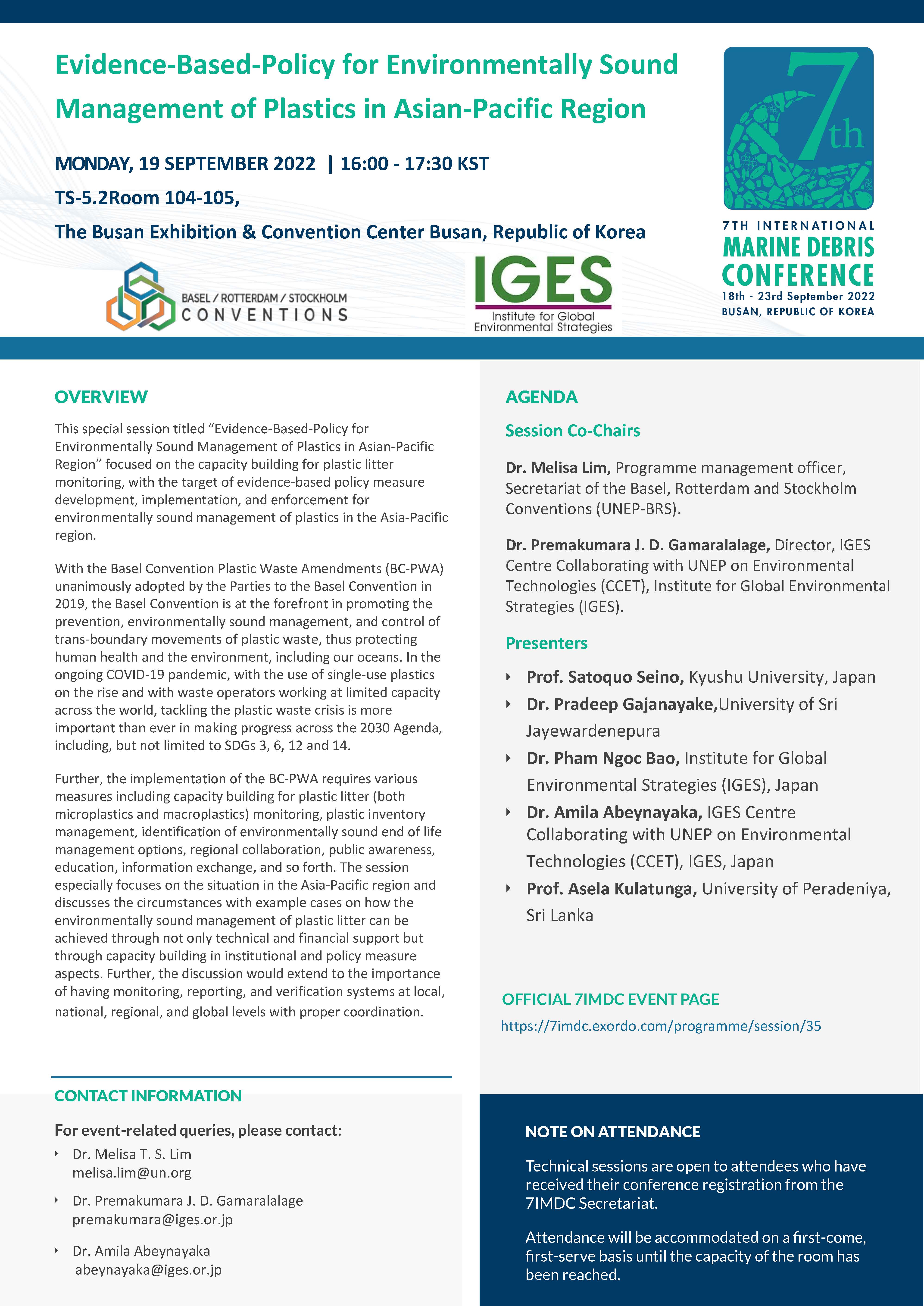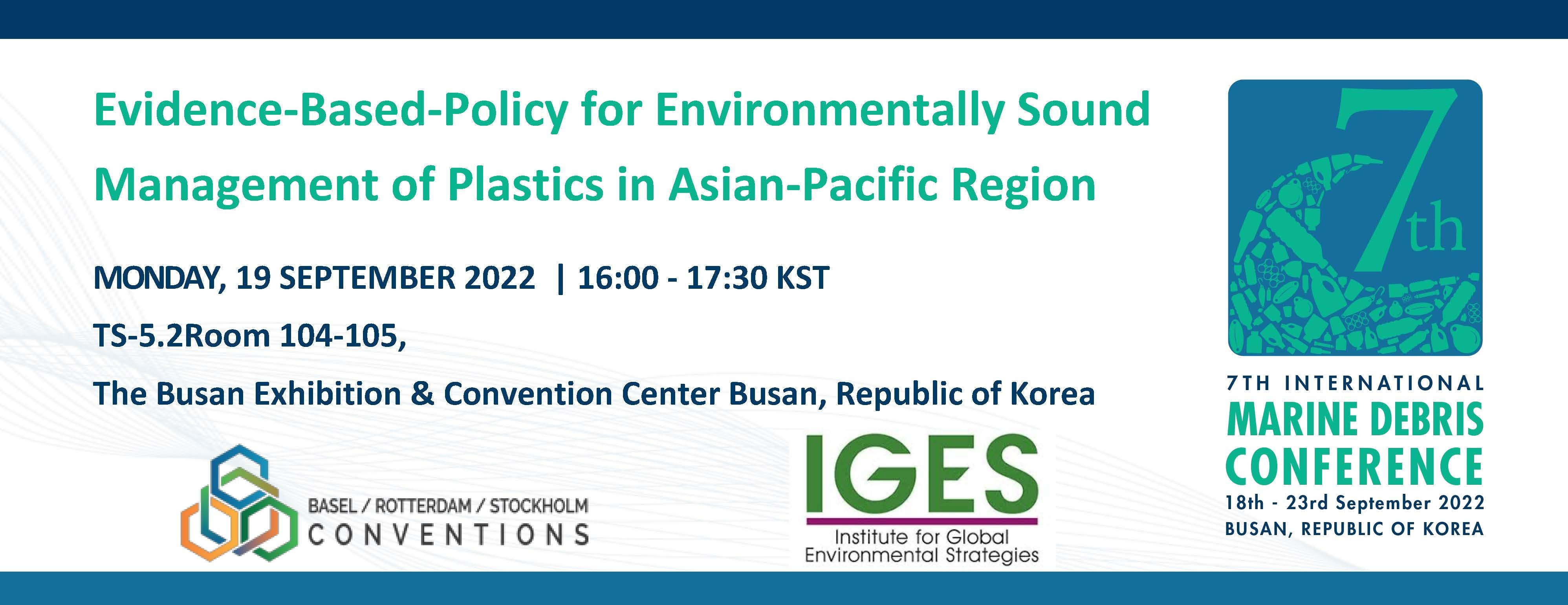This special session titled “Evidence-Based-Policy for Environmentally Sound Management of Plastics in Asian-Pacific Region” focused on the capacity building for plastic litter monitoring, with the target of evidence-based policy measure development, implementation, and enforcement for environmentally sound management of plastics in the Asia-Pacific region.
With the Basel Convention Plastic Waste Amendments (BC-PWA) unanimously adopted by the Parties to the Basel Convention in 2019, the Basel Convention is at the forefront in promoting the prevention, environmentally sound management, and control of transboundary movements of plastic waste, thus protecting human health and the environment, including our oceans. In the ongoing COVID-19 pandemic, with the use of single-use plastics on the rise and with waste operators working at limited capacity across the world, tackling the plastic waste crisis is more important than ever in making progress across the 2030 Agenda, including, but not limited to SDGs 3, 6, 12 and 14.
Further, the implementation of the BC-PWA requires various measures including capacity building for plastic litter (both microplastics and macroplastics) monitoring, plastic inventory management, identification of environmentally sound end-of-life management options, regional collaboration, public awareness, education, information exchange, and so forth. The session especially focuses on the situation in the Asia-Pacific region and discusses the circumstances with example cases on how the environmentally sound management of plastic litter can be achieved through not only technical and financial support but through capacity building in institutional and policy measure aspects. Further, the discussion would extend to the importance of having monitoring, reporting, and verification systems at local, national, regional, and global levels with proper coordination.


